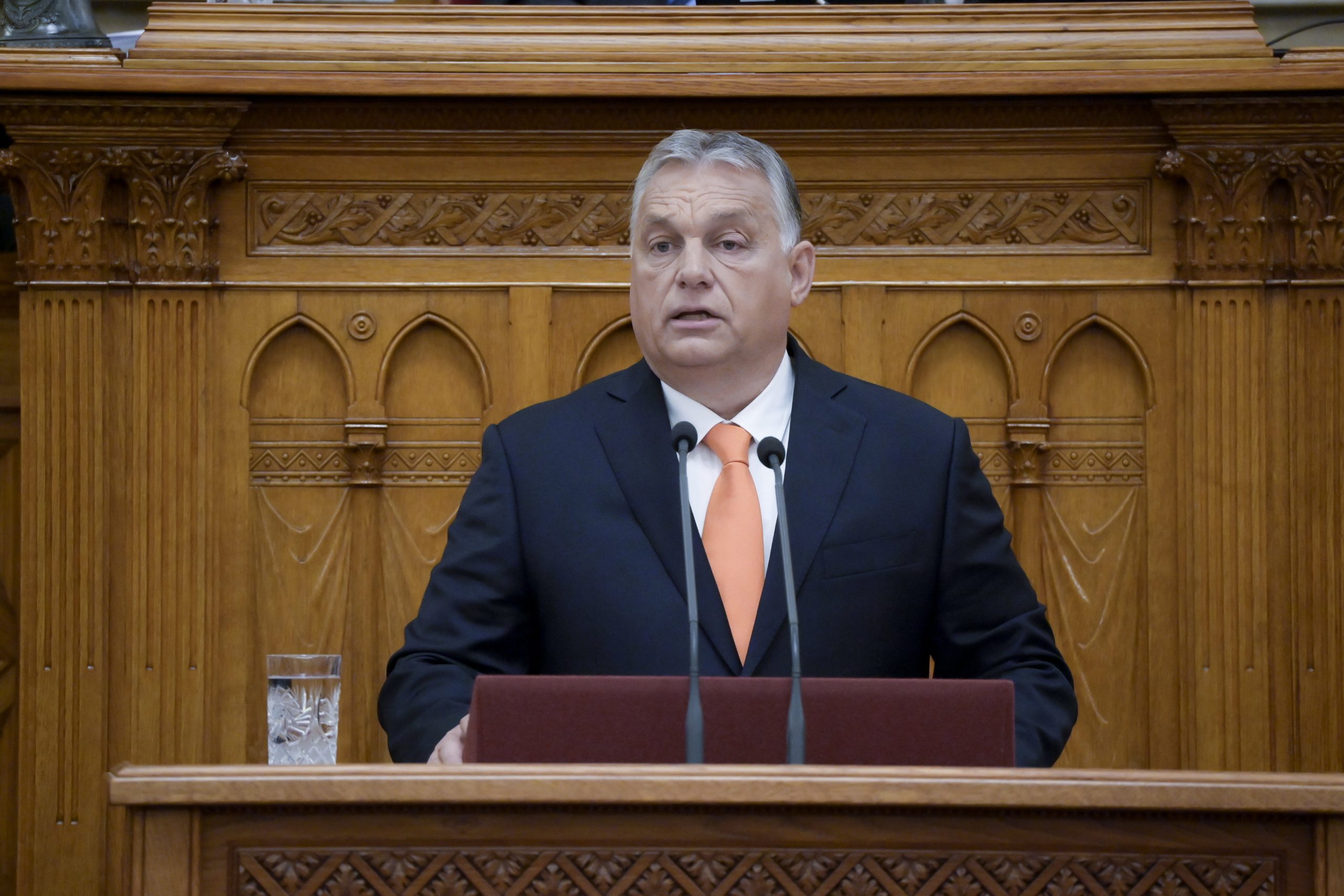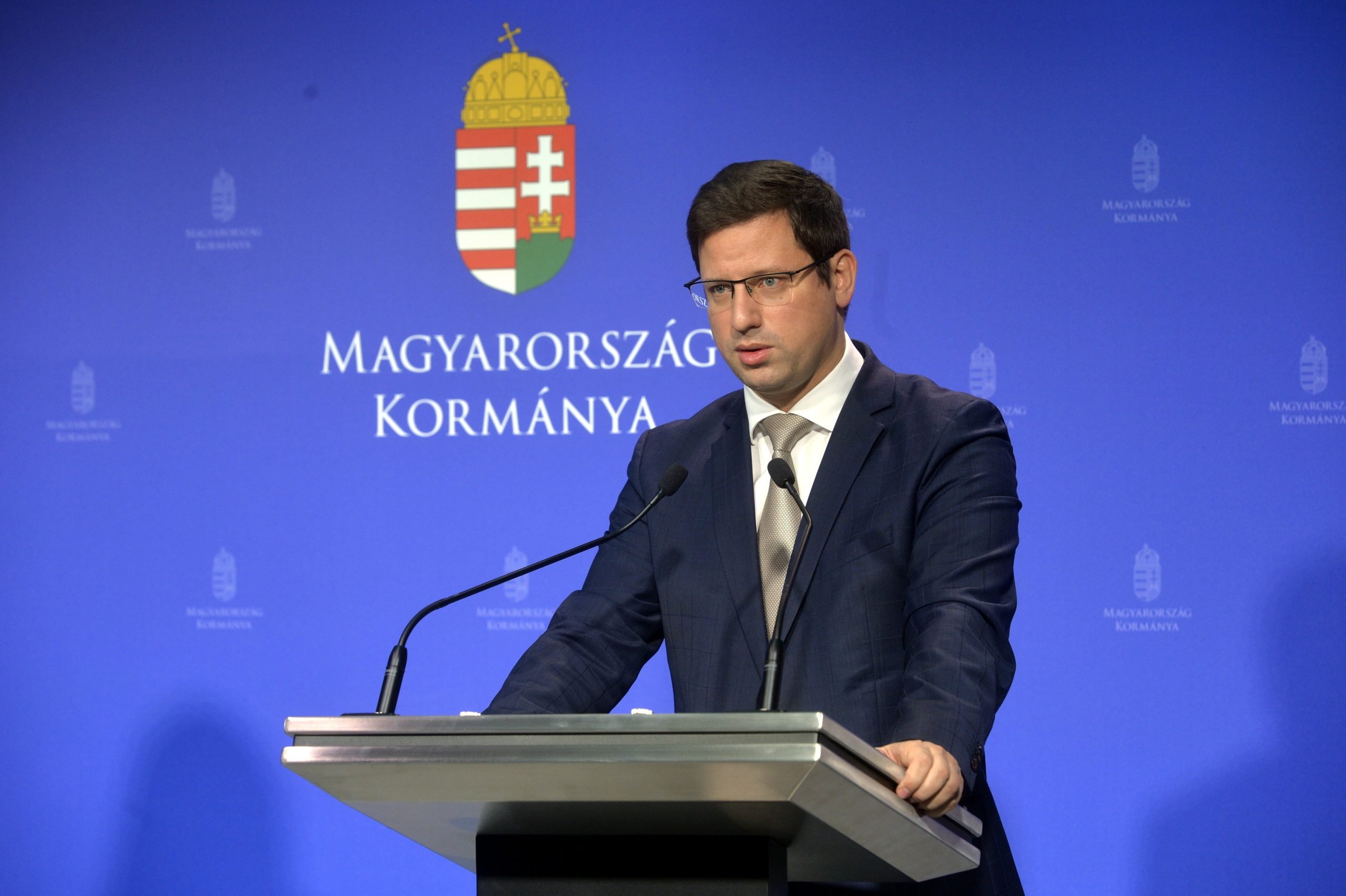
"Prices are going up across Europe primarily due to the war and will continue to rise until the war is over," Orbán said, adding that "Seeing this, we cannot sit idly in Hungary."Continue reading

It is unfair for the state to owe pensioners, Gergely Gulyás, the prime minister’s chief of staff, said on Sunday in connection with the government’s recently announced pension hike.
Gulyás announced earlier this week that pensions will increase by a further 3.9 percent from July in light of higher than expected inflation, bringing the overall pension hike to 8.9 percent.
Speaking to public broadcaster Kossuth Radio, Gulyás said the government knows that inflation will be higher than what had been projected prior to the outbreak of the war in Ukraine.
The 3.9 percent pension increase will make it easier to address the difficulties posed by inflation, he said, adding that the increased pension will be paid retroactively from the start of the year in one go.
Gulyás said Hungarians must not be made to pay the price of war. This can be prevented “if we can continue to buy our energy at the cheapest possible price”, he added.
The European Union should therefore withdraw its earlier decisions and should not approve sanctions that would make it impossible for member states to import Russian oil and gas, Gulyás said. Otherwise Hungary would have to buy this energy at much higher prices, which would make it impossible to uphold household utility price caps and the economy could not function, either, he added.
The government aims to preserve the conditions needed for the utility price caps to remain in place, Gulyás said, noting that this required Hungary to have access to oil and gas and for energy prices to return to normal levels as soon as possible.
“We mustn’t adopt sanctions with which we primarily penalize ourselves instead of those we want to sanction,” Gulyás said.
The EU has not approved any type of sanctions that would make it impossible for a member state to pay in roubles for Russian gas, Gulyás said, noting that such a transaction between a state and a company is governed by an agreement subject to civil law. Gulyás said the Hungarian state was in fact not paying in roubles for Russian gas, but had opened a euro account [with Gazprom Bank] which converts the euros transferred to its account by the Hungarian state into roubles.
“There are nine other countries using the same payment scheme, but because today the idea of being a good European also means that the leaders of those countries are not honest when speaking either in the international arena or to their own people, the other nine countries won’t say that they are doing the same thing,” said Gulyás.
“There should be no doubt in anyone’s mind that countries importing raw materials from Russia use exactly the same method to pay for Russian gas,” he said.
He said that because soaring energy prices required the government to supplement funding from the central budget, the government would need to regularly examine whether the price cap on fuel and staple foods could be maintained.
Hungarian oil and gas company MOL is also undertaking a significant burden in order to ensure that the retail price of fuel can be kept at 480 forints (EUR 1.27) per liter, he said.
Featured photo by Attila Kovács/MTI